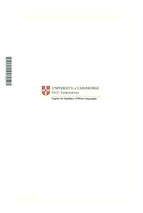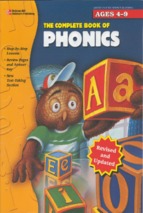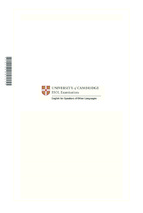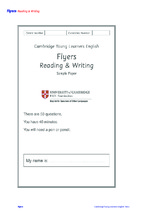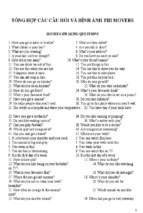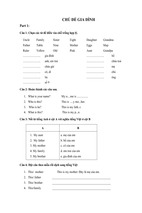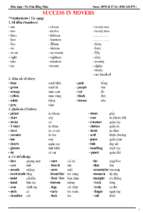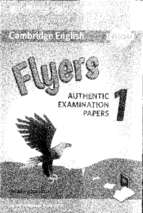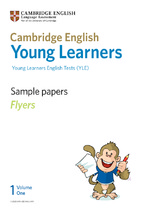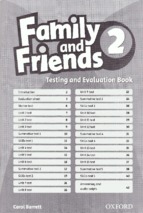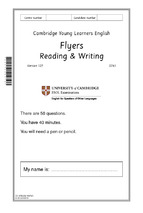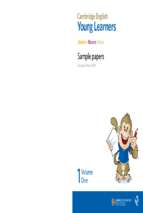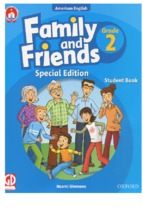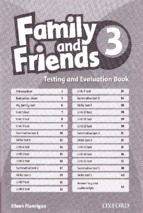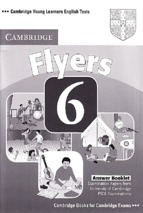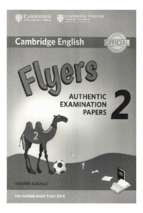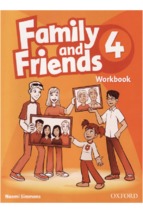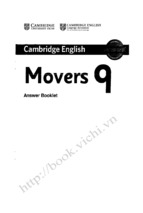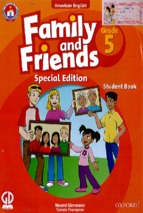i
3rd Edition
Intermediate
Business English Course Book
David Cotton
David Falvey
,I,
=
PEARSON
-
Longman
FT
FINANCIAL
TIMES
Simon Kent
DISCUSSION
U N IT 1
BRANDS
C)
C)
LANGUAGE WORK
SKILLS
Talk about your
listening: An interview
Words thaI go with
Taking part in
favourite brands
with a brand manager
brand. product and
meetings
Reading: Building luxury
market
brands - Financial Times
page 6
UNIT 2
TRAVEL
TEXTS
CASE STUDY
Hudson Corporation:
Decide how a luggage
manufacturer can
Present simple and
protect its brand
present continuous
Writing: e-mail
Talk about your
Listening: An interview
British and American
Telephoning:
8TS: Retain a travel
travel experiences
with a sales director of
travel words
making
agent's key client
Talking about the future
arrangements
Writing: e-rnail
Managing meetings
Acquiring Asia
a hotel chain
Reading: What business
page 14
travellers wantFinancial Times
U N IT3
CHANGE
C)
Discuss attitudes to
Reading: Mercedes,
Words for describing
change in general
shining star-
change
Entertainment: Solve
and at work
Financial Times
Past simple and present
the problems arising
listening: An interview
perfect
page 22
from a recent merger
with a management
Writing: action
consultant
minutes
WORKING ACROSS CULTURES: 1 SOCIALISING
C)
page 3 0
REVISION U N IT A
�
page 32
DISCUSSION
UNIT 4
ORGANISATION
C)
TEXTS
LANGUAGE WORK
SKILLS
CASE STUDY
Talk about
Reading: A successful
Words and expressions
Socialising:
status within an
organisation -
to describe company
introductions
Decide on the
organisation
Financial Times
structure
and networking
relocation site of a
listening: An interview
Noun combinations
page 36
InStep's relocation:
shoe manufacturer
with a management
Writing: e-mail
consultant
UNIT 5
ADVERTIS ING
C)
Discuss authentic
Reading: A new kind of
Words and expressions
Starting and
advertisements
campaign- Financial
for talking about
structuring a
Develop an
Times
advertising
presentation
advertising campaign
listening: An interview
Articles
page 44
Alpha Advertising:
Writing: summary
with a marketing
communications
executive
U N IT6
MONEY
C)
page 52
00 a Quiz and
listening: An interview
Words and expressions
discuss attitudes
with an investment
for talking about finance
Present a new idea
to money
director
Describing trends
to investors
Reading: An inspirational
Oealing with figures
Make your pitch:
Writing: e-mail
story- Sunday Times
WORKING ACROSS CULTURES: 2 I NTERNATIONAL MEETINGS
C)
REVISION UNIT B
C) page 62
WRITING FILE
C) page 126
SOCIAL-CULTURAL GAME
C) page 132
page 60
ACTIVITY FILE
� page 134
CONTENTS
DISCUSSION
U N IT7
CULTURES
=:J
page 66
U N IT8
HUMAN
RESOU RCES
=:J
=:J
SKILLS
Discuss the
Listening: An interview
Idioms for talking about
with the manager of a
business relationships
briefing: Prepare
cultural awareness
cultural training centre
Advice, obligation and
a talk on business
in business
Reading: Culture shock-
necessity
Social English
Writing: report
Talk about job
Reading: Women at
Expressions for talking
Getting information
Fast Fitness: Find
interviews
work-
about job applications
on the telephone
a new manager for
Thanh Nien News
-ing forms and infinitives
a health dub chain
listening: An interview
Writing: letter
with an international
recruitment specialist
Discuss the
Reading: Trade between
Words and expressions
development
China and the US- Chino
for talking about
Company: Negotiate
of international
Doily, Reuters
free trade
a deal on leather
markets
Listening: An interview
Conditions
Negotiating
Pampas Leather
goods
with an expert on
Writing: e-mail
negotiating
=:J page 90
=:J page 92
WORKING ACROSS CULTURES: 3 DOING BUSI NESS INTERNATIONALLY
REVISION U NIT C
DISCUSSION
=:J
Business culture
culture
Finance Week
page 82
U N IT 10
ETHICS
CASE STUDY
importance of
page 74
U N IT9
INTERNATIONAL
MARKETS
LANGUAGE WORK
TEXTS
TEXTS
LANGUAGE WORK
SKILLS
Considering options
CASE STUDY
Discuss questions
Reading: The ethics
Words to describe illegal
of ethics at work
of resume writing
activity or unethical
Business Week
behaviour
dilemmas facing a
Narrative tenses
drugs company
Listening: An interview
page 96
Principles or profit?:
Debate some ethical
Writing: report
with the director of
an environmental
organisation
U NIT 11
LEADERSH I P
=:J
Presenting
Lina Sports: Decide
Discuss the qualities
Listening: An interview
Words to describe
of good leadership
with the managing
character
on the best leader for
director of an executive
Relative clauses
a troubled sportswear
recruitment company
page 104
manufacturer
Reading: Leading L'Oreal
Writing: e-mail
- Financial Times
U N I T 12
COMPETITION
=:J
Do a quiz on how
Reading: Head to head
Idioms from sport to
competitive you are
competition -
describe competition
Negotiate new
Passives
contracts with
page 1 1 2
Financial Times
Listening: An interview
with a manager from the
Competition Commission
WORKING ACROSS CULTURES: 4 COMMU NICATION STYLES
REVISION UNIT D
GRAMMAR REFERENCE
=:J page 146
AU DIO SCRI PTS
=:J page 152
Negotiating
Fashion House:
suppliers
Writing: e-mail
=:J page 120
=:J page 122
GLOSSARY
=:J page 1 67
What is
Market Leader, and who is it for?
Market Leader is a multi· level business English course for businesspeople and students of business
English. It has been developed in association with the Financial Times, one of the leading sources of
business information in the world. It consists of 12 units based on topics of great interest to everyone
involved in international business.
This third edition of the Intermediate level features completely updated content and a significantly
enhanced range of authentic resource material, reflecting the latest trends in the business world.
If you are in business, the course will greatly improve your ability to communicate in English in a
wide range of business situations. If you are a student of business, the course will develop the
communication skills you need to succeed in business and will enlarge your knowledge of the
business world. Everybody studying this course will become more fluent and confident in using
the language of business and should increase their career prospects.
The authors
David Falvey (left) has over 25 years' teaching and managerial experience in the UK, japan and Hong
Kong. He has also worked as a teacher trainer at the British Council in Tokyo, and was until recently
Head of the English Language Centre and Principal Lecturer at London Metropolitan University.
David Cotton (centre) has over 40 years' experience teaching and training in EFL, ESP and English for
Business, and is the author of numerous business English titles, including Agenda, World of Business,
International Business Topics and Keys to Management. He is also one of the authors of the best·
selling Business C/ass. He was until recently a Senior Lecturer at London Metropolitan University.
Simon Kent (right) has over 20 years' teaching experience, including three years as an in·company
trainer i n Berlin at the time of German reunification. He is currently a Senior Lecturer in business
and general English, as well as having special responsibility for designing new courses at London
Metropolitan U niversity.
4
INTRODUCTION
What is in the units?
You are offered a variety of interesting activities in which you discuss the topic
of the unit and exchange ideas about it.
VOCABU LARY
READI NG
LISTE NING
LANGUAGE REVIEW
SKI LLS
CASE STUDY
WORKING ACROSS
CULTURES
REVISION U N ITS
You will learn important new words and phrases which you can use when you carry
out the tasks in the unit. You can find definitions and examples, and listen to the
pronunciation of new vocabulary in the i-Glossary feature on the OVO-ROM.
A good business dictionary, such as the Longman Business English Dictionary,
will also help you to increase your business vocabulary.
You will read authentic articles on a variety of topics from the Financial Times and
other newspapers and books on business. You will develop your reading skills and
learn essential business vocabulary. You will also be able to discuss the ideas and
issues in the articles.
You will hear authentic interviews with businesspeople and a variety of scripted
recordings. You will develop listening skills such as listening for information and
note-taking. You can also watch the interviews on the OVO-ROM.
This section focuses on common problem areas at intermediate level. You will
become more accurate in your use of language. Each unit contains a Language
review box which provides a review of key grammar items.
You will develop essential business communication skills, such as making
presentations, taking part in meetings, negotiating, telephoning, and using English
in social situations. Each Skills section contains a Useful language box, which
provides you with the language you need to carry out the realistic business tasks
in the book.
The Case studies are linked to the business topics of each unit. They are based
on realistic business prablems or situations and allow you to use the language
and communication skills you have developed while working through the unit.
They give you the opportunity to practise your speaking skills in realistic business
situations. Each Case study ends with a writing task. After you've finished the Case
study, you can watch a consultant discussing the issues it raises on the OVO-ROM.
These four units focus on different aspects of international communication.
They help to raise your awareness of potential problems or misunderstandings
that may arise when doing business with people from different cultures.
Market Leader Intermediate third edition also contains four revision units,
each based on material covered in the preceding three Course book units.
Each revision unit is designed so that it can be completed in one session
or on a unit-by-unit basis.
5
STARTING U P
IJ
Work with a partner. List some of your favourite brands. Then answer these
questions.
1
Il
6
Do you / Would you buy any of the following brands? Why? / Why not?
Coca-Cola
Ikea
Microsoft
Tesco
Chanel
IBM
General Electric
Virgin
Nokia
Kellogg's
Toyota
Google
Intel
Samsung
Ford
McDonald's
Mercedes-Benz
Disney
Marlboro
China Mobile
2
Which of the brands above do you think feature in the top-ten Interbrand list in both
1999 and 2007? (Check your answer on page 134. Are you surprised?)
3
Pick some of the brands above which interest you. What image and qualities does each
one have? Use these words and phrases to help you.
value for money
upmarket
timeless
well-made
classic
durable
inexpensive
cool
reliable
stylish
fashionable
sexy
sophisticated
fun
4
How loyal are you to the brands you have chosen? For example. when you buy jeans,
do you always buy Levi's? Why do people buy brands?
5
Why do you think some people dislike brands?
�)>> CDl.l Listen to two speakers talking about brands. What reasons does each
person give for liking or disliking brands? Which person do you agree with?
UNIT 1 •• BRANDS
B
Brand
management
I!I
B
R
A
N
D
Match these word partnerships to their meanings_
1
loyalty
2
image
�
a) the title given to a product by the company that makes it
b) using an existing name on another type of product
3
stretching
c) the ideas and beliefs people have about a brand
4
awareness
d) the tendency to always buy a particular brand
5
name
e) how familiar people are with a brand (or its logo and slogan)
6
launch
f) the set of products made by a company
7
lifecycle
g) the use of a well-known person to advertise products
8
range
h) when products are used in films or TV programmes
9
placement
i) the introduction of a product to the market
10 endorsement
j) the length of time people continue to buy a product
11 leader
k) the percentage of sales a company has
12 research
I) customers of a similar age, income level or social group
13 share
m) the best-selling product or brand in a market
14 challenger
n) information about what consumers want or need
15 segment
0) the second best-selling product or brand in a market
Complete these sentences with word partnerships from Exercise A_
1
No one recognises our logo or slogan. We need to spend more on advertising to raise
.�t.t?,:,.4. C?�� r.�.0�?J.
.
P
R
O
D
U
C
T
2
Consumers who always buy Sony when they need a new TV are showing . . . . . . . . . . . .
3
A fashion designer who launches his o r her own perfume is an example of
4
The . . . . . . . . . . . . of Mercedes-Benz is such that its products are seen as safe, reliable,
luxurious, well made and expensive.
5
George Clooney advertising Nespresso is an example of . . . . . . . . . . . .
6 A . . . . . . . . . . . consists of introduction, growth, maturity and decline.
7
Tesco's wide . . . . . . . . . . . . means that it appeals to all sectors of the
UK
market.
8 The use of Aston Martin cars and Sony computers in James Bond films are examples
of . . . . . . . . . . .
.
M
A
R
K
E
T
9
Microsoft is the . . . . . . . . . . . in computer software.
10 In countries with ageing populations, the over·60s age group is becoming an
increasingly important . . . . . . . . . . . .
.
11 Pepsi is the . . . . . . . . . . . in carbonated soft drinks.
12 Focus groups and consumer surveys are ways of conducting . . . . . . . . . . . .
B
See the OVO-ROM
for the i-Glossary.
�
V
Discuss these questions.
1
What are the advantages and disadvantages for companies of prlJduct endorsements?
2
How can companies create brand loyalty?
3
Can you give any examples of successful o r unsuccessful brand stretching?
4
Think of a cheap or expensive idea for a product launch.
5
What other market segments can you identify (e.g. young singles).
6
What action can companies take if they start to lose market share?
7
UNIT 1 .. BRANDS
Successful
brands
m
�)>> CD1.2 Chris Cleaver is Managing Director, Business Brands at Dragon Brands.
listen to the first part of the interview and tick the points that he makes.
A brand ...
1 helps people to become familiar with a product.
2
Chris Cleaver
Watch the
interview on
the OVO-ROM.
0
Building luxury
brands
gives a product an identity.
3
increases the sales of a product or service.
4
enables the target consumer to decide if they want the product o r not.
III
�)>> CD1.3 listen to the second part of the interview and answer the question.
II
�))) CD1.4 listen to the final part. In which two ways has Chris Cleaver's
m
Think of three brands you really like and discuss what 'appealing and
persuasive' ideas they communicate to you.
m
What is the brand image of Dior?
III
Skim the article on the opposite page quickly and say which of the following
points are mentioned:
II
What is the main function of a brand?
company helped Nokia?
1
The high profit margins on bags
2
Investing in markets that may take some time to grow
3
People are ready to pay a lot of money for very high·quality things because
they are beautiful.
4
Building customer loyalty through ready·to-wear
Read the article and complete the notes in the maps below. Then correct the
ten mistakes.
need for . . . . . . . . . . .
values of a historic
need for expansion
of shareholders
balances
good times
gel out of office
bad times
- time on
organisation
assistant
Bernard
Arnault
creative types
/ \
wear - de Castellane
6
ca\culator
iewellery
Galliano
newness
8
whal happens next
people from different
countries
UNIT 1 •• BRANDS
Restless pursuer of luxury's future
by Vanessa
5
10
Friedman
Sydney Toledano
(Dior's
Chief
Executive) is one of (he longest
serving chief executives In the
luxury industry. As the industry
goes global, he must balance the
demands of shareholders and the
values of a historic label. the need
for exclusivity and the need for
expansion.
He routinely communicates with
his demanding boss, Bcmard Antault.
main shareholder of Christian Dior,
and a number of creative lypes,
including Dior's clothes designer
15 John Galliano and jewellery designer
Vicwire de Castellanc.
'The best advice I ever gOI was
Ihat, when times are bad, you
need to gel QuI of the office; when
things arc good, you can spend
lime 011 the organisation,' says
Mr Tolcdano, who travels almost
every week 10 one of Dior's 224
stores round the world. ' You have to
look for newness, look for what is
happening next . Forget lhe calculator.
Understand the people from different
countries and what they want.'
It was by spending lime in China in
the 1980s. for example, when he
worked > (D1.5 Four marketing executives at a sports sponsorship agency are
talking about finding a new sponsor for their client, a well-known media
company, Listen to the conversation and answer the q uestions,
1
Why does the client want to change the sport they sponsor?
2
Which four sports do the executives consider?
3
Which sport does Mario suggest? Why does he suggest it?
4
What must David do before he contacts Larry Harrington's agent?
�)>> CD1. 5 Listen again and complete the extract.
Joy
'
Well, there are several possibilities, . . . . . . . . . . . . ice hockey? It's an incredibly fast.
exciting sport, it's very popular in America and in a lot of European countries .
David
OK. that's a possibility. .
Natasha
Mmm, . . . . . . . . . . . . '. It's not really an international sport, is it? Not in the same way
as baseball, for example. or ... tennis.
'
. . . . . . . . . . - baseball's got a lot more international appeal. and it's a sport that's
got a good image. I don't know about tennis - I'm not sure it would be suitable.
Mario,
. . . . �?
David
B
••
..
. ' , Natasha? Would ice hockey be a good choice?
Mario
. . . . . . . . . . . '. motor racing would be perfect for our client. It's fast. exciting. and
the TV coverage of Formula One races is excellent. They would get a lot of
exposure, it will really strengthen their image.
David
That's a great idea. Mario . . . . . . . . . . . . . 7 get in touch with Larry Harrington's agency
and see if he's interested? Harrington's young. exciting - he'd probably jump
at the chance to work with our client. They're a perfect match. But first I must
check with our client and make sure they're happy with our choice.
Which of the phrases in Exercise B are:
1
asking for opinions?
3 agreeing or disagreeing?
2
giving opinions?
4
making suggestions?
Role-play this situation.
Jeanne de Brion is a jewellery company in Boston. USA. A year ago. it launched a line
of jewellery with the brand name ·Cecile·. This is the name of the French designer who
created the collection. Unfortunately. the Cecile line has not achieved its sales targets.
Three directors of the company meet to discuss how to improve sales.
Work in groups of three, Read your role cards, study the Useful language
box and then role-play the discussion,
Student A: Turn to page 134.
Student B: Turn to page 140.
Student C: Turn to page 143.
USEFUL LANGUAGE
ASKING FOR
OPINIONS
GIVING OPINIONS
AGREEING
DISAGREEING
MAKING
SUGGESTIONS
How do you feel
about that?
I think /1 don't think
that's a good idea.
That's true,
I think we should
reduce our prices.
What do you think?
I n my opinion. we
need new products.
Absolutely.
I see / know what
you mean. but I think
there's a problem.
What's your view?
I agree.
Exactly.
I think so. too.
I'm not so sure.
How about a special
promotion?
Maybe. but that's not
enough.
Why don't we talk to
the big stores?
Maybe / Perhaps
we could offer
incentives.
11
HUDSON
CORPORATION
A luxury luggage m a n ufacturer is facing
increased competition from cheaper im ports.
I t m ust decide how to protect its brand and
create new markets for its products.
Background
Market research
Hudson Corporation, based in New Jersey, USA,
makes top-of-the-range luggage and Iravel
accessories. It is a well-known brand name in the
USA. Its suitcases and bags are associated with
high quality, traditional design and craftsmanship.
Hudson emphasises in its advertising that its
products are 'made in America'. Recently, the
company's market share in the USA has decreased.
One reason for this has been the increased
competition from Asian companies selling similar
products at much lower prices.
Hudson recently set up a series of focus groups to
find out how consumers perceived the company's
brand in the USA.
Which of the findings do you think may have
contributed to the company's lower market share
in its home market?
Do you think Hudson's
luggage and bags are:
% of people
A year ago, the management decided to boost
sales by entering the European market, focusing
initially on Switzerland, Germany, France and
Italy. They set up a branch office and warehouse
facility in Zurich, which would be the base for their
European expansion.
expensive?
72
exclusive?
56
value for money?
48
good quality?
82
old-fashioned?
68
What problems do you think Hudson will face
on entering the European market? Make a list
of your ideas.
exciting?
15
innovative?
18
answering 'yes'
�l)) (01.6 Four of Hudson's
American managers are
talking about the problems
they could face in Europe.
listen and make notes on
the key points.
ARKETING STRATEGIE
FOR EUROPE - OPTIONS
Reposition the brand
Hire a top designer
Sell Hudson suitcases and bags at medium price
ranges. Manufacture the products in a country
where labour costs are low, e.g. India or China.
Do not promote the products as 'Made in America'.
Use a high-volume, low-cost strategy for Hudson's
core products.
Employ a top designer to produce a new range
of smaller suitcases and shoulder bags aimed at
businesspeople travelling in Europe and at rich,
younger, fashion-conscious buyers. Sell the
products under a new label.
Develop the Hudson brand
Sell a wider range of products under the Hudson
label, e.g. trolley-backpacks, document cases,
briefcases, name-card holders, shoulder bags for
men and women. Sell at lower, competitive prices.
Promote the Hudson products as an exclusive
brand and keep the 'Made in America' tag. Sell
the products in the higher price ranges. Use product
placement in films and television to support the
brand. Hire a famous, sophisticated, influential
man and woman to endorse the products. Two
well-known French film stars have shown interest
in endorsing a new range.
Develop a wider product range
Stretch the Hudson brand
Put the Hudson brand on high-quality watches
and jewellery. Make an agreement with the Swiss
manufacturers of these top-of-the-range products.
Develop sales using e-commerce
Sell the existing product lines via the Internet at
very competitive prices.
1
Work in small groups as d irectors of the Hudson Corporation.
Hold an informal meeting. Consider the advantages and
disadvantages of each option listed above. Choose two of
the marketing strategies which Hudson should focus on to
expand sales in European markets.
2
Meet as one group and decide which two marketing
strategies you will use to develop sales in European markets.
Watch the Case study commentary an the DVD-ROM.
Writing
As the CEO of Hudson Corporation, write an
e-mail to the head of European Marketing
Associates, David Wright, summarising the
actions you agreed to take at your meeting,
with your reasons. Suggest a time for a meeting
with David Wright and his associates.
C) Writing file page 127
o
13
STARTING U P
Ii!
Discuss these questions with a partner.
1
How often do you travel by air, rail, road and sea?
2
Do you enjoy travelling? What don't you enjoy about it?
3
Put the following in order of importance to you when you travel.
I comfort
safety
reliability
price
speed
Does the order of priorities change for different types of travel?
m
Choose the correct words from the box to complete the following list of
things which irritate people when flying.
cabin
cancellations
checks
food
jet
luggage
queues
room
seats
trolleys
1
not enough leg. . . . . . . . .
6
2
lost or delayed . . . . . . . .
7 flight delays and . . . . . . . . . . . .
3
long . . . . . . . . . . . . at check·in
8 tiredness and . . . . . . . . . . . . Iag
4 poor quality.
5
14
no baggage
. and drink
.. available
9
overbooking of . . . . . . . . . . .
delays for security . . . . . . . . . . .
10 oversized hand luggage in the .
1:1
�)>> CD1.7 listen to three people talking about their travel experiences.
Tick the problems in Exercise B that they mention.
m
Which of the things in Exercise B irritate you most? Which irritate you least?
Discuss your ideas with a different partner.
VOCABULARY
British and
American
English
m
Match the words and phrases which have the same meaning_ For each pair,
decide which is British English and which is American English_
1
2
3
4
5
6
7
8
9
10
11
12
13
14
15
Il
subway
city centre
carry-on baggage
one way
return
freeway
rest room
elevator
coach class
timetable
car park
queue
check
reservation
ground floor
a)
b)
c)
d)
e)
f)
g)
h)
i)
D
k)
I)
m)
n)
0)
line
lift
public toilet
schedule
economy class
single
first floor
bill
booking
round trip
downtown
motorway
underground
hand luggage
parking lot
Work i n pairs_ Use the American English words or phrases from Exercise A
to complete this text.
My last overseas business trip was a nightmare from start to finish. First of all, there
was a delay on the way to the airport, as there was an accident on the f��� ��y I. When I
got there, I found the lower level of the airport . . . . . . . . . . . . 'was flooded. Next, my . . . . . . . . . . 1
.
.
.
.
.
was too big and heavy, so I had to check it in. When we arrived, the
. . . . . . . . . ' was closed, and there were no cabs at all. After a long time trying to figure out
the .
. . . ' and waiting in . . . . . . . . . . . . 6 for 40 minutes, we finally got a bus .. .
and found the hotel. Then there was a problem with our room
. .
8 and, would you
believe it, the . . . . . . . . . . . ' wasn't working, and our rooms were on the fifth floor.
.
See the OVO-ROM
for the i-Glossary.
A
W
II
. . .
.
.
.
.
.
.
�I» CD1.8 Listen to the recording and check your answers to Exercise B_
15
UNIT 2
••
TRAVEL
_Mniiili�
�)>> (01.9 Listen to Sholto Smith, Area Sales Director for Hyatt H otels, talking
about how the company meets the needs of business travellers. Listen to
the first part and tick which of the following he mentions.
Hyatt Hotels
Location of hotels
III
Good links with
underground networks
Close to the airport
Totally non·smoking
Good restaurant
Close to client's office
Technology
Internet
Business centre
Swimming pool
Translation services
Free transport to hotel
�)>> (01.10 Listen to the second part and complete the notes on the ways
hotels are adding value to their guests' stay.
Sholto Smith
.... I on a daily basis
•
•
Membership to the ........................ '
•
Newspapers
•
Transportation to and from the ...
•
A shuttle service to:
a)the ..
b) the . . ....... . . > in which the client works
Watch the
interview on
the OVO-ROM.
READING
What business
travellers want
B
�)>> (D1.11 Listen to the third part and summarise the future developments in
m
In groups, discuss what is important for you when staying in a hotel, for
either work or pleasure.
B
What factors do you consider when choosing an airline?
III
Work in pairs. Complete the table below for your article. (You may not be
able to answer every point.)
the business travel market that Sholto mentions.
Student A: Read the article on page 17.
Student B: Read the article on page 134.
Edmond Moutran
job
Chairma o of Memac
09ilvy & Mather
nationality
travel destinations
amount of air travel
choice of class
choice of airline
likes
dislikes
travel to airport
hotel requirements
16
John Cox
UNIT 2
••
TRAVEL
Counting the ways to bridge the gulf
by Jill James
As morc carriers open up more routes,
travelling to and arollnd the Middle
East has never been easier.
Edmond Moutran, the 63-year-old
5
Chairman
and Chief Executive
of Memac Ogilvy & Mather, the
advertising
multinational
and
communications company, should
know. The
Lebanese
execut.ive
10 reckons he spends 60% of his
working week in the air. 'I spend
200 days in Beirut, 40 days in Dubai,
40 days in Bahrain and 25 in the
UK. I also spend one week in each
15 of Cairo, Jordan, Jeddah, Riyadh,
Kuwait, Tunis and Algeria. I go to
South Africa once a year, Barcelona
once or twice a year for conferences
and I go to Paris four times a year.'
He says his choice of airline is
dictated by convenience, but his
preference is for Middle East Airlines
and its 'new aircraft and equipment,
and well-trained, fresh and energetic
staff'. His second choice is Gulf
Air, with Emirates third, followed
by British Airways and Air France .
He always travels with his wife.
Liliane, who worked with him
30 until very recently, and prefers to
travel first class. He also uses business
class . He says he will travel economy
'in an emergency' .
He uses airline lounges. '1 want
good chairs, plenty of newspapers and
television. Airlines that spend millions
on decor and have uncomfortable
chairs really need to look at
themselves.'
40
'MEA gets me a car to the airport
and they open a special counter for
me as an individual,' he says. 'Staff
take your boarding pass. check you in
and walk you through to the lounge.
45 The airline saves me abollt an hour o f
standing i n line. I t shows real respecl.
You don't really get this extra
special treatment on other airlines.
With MEA, it's the whole process
50 - that's why I ' m so loyal to them.'
So what annoys him most about
Hying? 'The attitude of crew and
35
staff sometimes,' he says. ' I f they're
tired
of
their
jobs,
they
should
55 give il up. I also dislike the casual
attitude of ground staff. Employees
should
be
customers
trained
who
to
have
cope
with
problems.'
Mr Moutran says that problems with
ground staff are one of the reasons he
60
hales (ravelling to the US. 'No one
4
ever has time 10 answer a queslion
there,' he says . He also doesn't like
the lack of openness shown by airlines
65
when there are problems and delays.
B
In pairs, share information about the two articles. Compare the attitudes of
the two travellers. Whose point of view is closest to yours?
m
Match the sentence halves to complete the definitions of the words in bold.
1
Peak travel happens
a) a change to a better seat or level of service.
2
When you check in,
b) a room in a hotel/airport where people can sit and
relax.
3
Frequent-flyer points are
c) a card you must show in order to get on a plane.
4
An upgrade is
d) all the people who work at an airport, but not the
pilots or cabin crew.
S A lounge is
e) awarded by airlines to reward customer loyalty.
6 A boarding pass is
f) at times when the largest number of people are
travelling.
7 Ground staff are
D
g) you go to desk at a hotel/airport to say you have arrived.
Complete the text with the phrases from Exercise D.
I don't always pay a lot of money and I try to avoid . . . . . . . . . . . . '. However, I do travel a
lot, earn . . . . . . . . . . . . ' and usually gel an .
to the airporl. I am met by helpfu i . . . .
. . . . . . . . . . . . ' . Then they take me to the .
.. . . . . . . . . )
to first class. The airline gets me a car
'
. . They take my . . . . . . . . . . . > and help me
. ... . . . . . . 7 , where
I read the newspapers.
17
UNIT 2
••
TRAVEL
LANGUAGE REVIEW
We can use different language forms to talk about the future.
Talking about
the future
•
•
•
•
We use going to to talk about what we intend to do and have already decided to do.
My col/eague and I are going to attend our Chairman's wedding in Seattle next month.
Some airlines are going to increase fuel surcharges this week.
We use will or '/I to talk about something we have decided to do at the time of
speaking.
The deal's off. I'll call the travel agent to cancel the flights.
We use the present continuous to talk about a fixed arrangement.
I'm travelling from Australia to Europe in September.
We use the present simple to talk about a timetable or programme.
The flight/eaves Ho Chi Minh City at 11 :30 on Tuesday. It arrives in Danang at 12:40.
c:) Grammar reference page 146
EI
Complete each dialogue with the correct form of going to or will.
1
A
Have you decided where to hold the sales conference?
B Yes, we . . . . . . . . . . book the Emory Centre in Atlanta.
2
A I can't find my passport.
B
3 A
OK, you look in your bag, and I
. check the back seat of the car.
What are you planning to do in Tokyo?
B We . . . . . . . . . . meet our agent to discuss next year's advertising budget.
4 A I'm afraid the flight's been cancelled.
B I need to get there tonight. I . . . . . . . . . . . take the train. I think it leaves at nine.
S A The Hertz counter is a good place to meet.
B
Il
OK, I . . . . . . . . . . . wait for you there.
Choose the correct tense (present continuous or present simple) to complete
the sentences.
1
We stay / are staying at the Ritz for next week's conference.
2
According to the timetable, the coach deports / is deporting from Victoria at 8:00,
reaches Lille at 12:30 and arrives in Paris at 13:30.
3
Excuse me, what time is the conference beginning / does the conference begin?
4
What do you do / are you doing on Tuesday afternoon?
S What time is this train getting / does this train get to Osaka?
6 Next time, I travel / am travelling to Madrid by train.
II
In pairs, take turns to complete the sentences below. Use going to, will, the
present continuous or the present simple.
1
The flight's delayed, so . . . . . . . . . . . .
2
OK, I've decided. I .
3
Let's check the timetable. The flight . . . . . . . . . . . .
4
It's OK, I don't need a lift. I . . . . . . . . . . . . .
S Friday afternoon? I'll just check my diary. I . . . . . . . . . . .
6 There are two flights to Hong Kong on Friday. .
7 It's all arranged, we
8 Next week, . . .
18
.
UNIT 2
SKILLS
Telephoning:
making
arrangements
••
TRAVEL
III
�)>> CD1.12, 1.13 Jennifer North, Sales Director at Madison i n New York, makes
[]
�)>> CD1.12 listen to the first call again and complete this extract.
two telephone calls to Cristina Verdi, a fashion buyer in london. listen and
note a) the purpose of each call and b) the result.
Jennifer
.. ........
I'm calling because I'll be in london next week and .
......... ............ ............
' t o see you. I want to tell you about
our new collection.
Cristina
Great. What . . . . . .
week, I think.
.
. . . . . . .
. . . . . . • . . . . .
. . . . . . .
. . . .
.
' ? I'm fairly free next
. . . . . . . '? In the afternoon? Could . .
Jennifer
. . . . . . . . . . . . " then?
Cristina
let m e look now. Let . . . . . . . . . . . . . . . . . .
. . . . . . ' . Yes, that'd be
no problem at all. . . . . . . . . . . . . . . . . . . . . 6 two o'clock? Is that OK?
.
II
.
�)>> CD1.13 listen to the second call again and complete this extract.
Receptionist Thank you. I'm putting you through ... Hello, I'm afraid she's engaged at
the moment. . . . . . . . . . . . . . . . . . . . . . . . . . . . . . . . . . . . ' or can I put you through to her
voicemail?
Jennifer
Would you be able to take a message for me, please? I'm in a bit of a hurry.
Receptionist Yes, certainly.
Jennifer
..........
The thing is, I should be meeting Ms Verdi at 2 p.m.,
. . . . . . . . . ' . My plane was delayed, and I've got to reschedule my
appointments. If possible , . . .
..... ............ ..
. ....... ..
tomorrow, . . . . . . . . . . . . " in the morning. . . . . . . . . . . . .
.
. ..
. . . . . . . . . . . . ' here al the hotel, please, to confirm?
.
.
. . . . . . . .
..
.
.
Receptionist Certainly. What's the number?
Jennifer
m
II's . . . . . . . . . . '.
Role-play these two telephone situations.
1
Student A, you are a company employee who has arranged to meet Student B,
a cOlleague from one of your subsidiaries. Explain that you cannot keep the
appointment and give a reason. Suggest an alternative day.
2
Student B, you are on a business trip to Singapore and need to stay an extra day.
Your hotel is full. Telephone the airline office. Talk to the representative, Student A,
to arrange a different flight and a night at another hotel.
USEFUL LANGUAGE
ANSWERING THE
PHONE
IDENTIFYING
YOURSELF
MAKING
ARRANGEMENTS
Hello, Carla
Rodriguez speaking.
This is / My name's
Karin Nordby.
Could we meet on
Monday at 1 1 :00?
Good morning, Tiger
Ltd.
Karin Nordby
speaking.
How/What about
June 12th?
MAKING CONTACT
STATING YOUR
PURPOSE
I'd like to speak
to Martin Krause,
please.
Could I have the
sales department,
please?
Is 9:30 convenient/
OK?
I'm calling about ...
RESPONDING
The reason I'm
calling is ...
That's fine/OK for me.
Sorry, I can't make it
then.
No problem.
CLOSING
Good. So, I'll see you
on the 8th.
Thank you. Goodbye.
Right. / OK, then.
That's great, I'll see
you ...
CHANGING
ARRANGEMENTS
I'm afraid I can't come
on Friday. I'm very
busy that day.
I'm sorry, I can't make
it on Tuesday. I've got
something on that
morning.
We've got an
appointment for ten
o'clock, but I'm afraid
something's come up.
Could we fix another
time?
19
A specia list travel agent has to work hard to ret a i n a key client.
Background
Business Travel Services (BTS) is based in Philadelphia, USA. One of its most important clients is the large
multinational corporation NeoTech, whose head office is also in Philadelphia. Recently, NeoTech's senior
executives have had problems when they have been on business trips organised by BTS.
•
•
Home I Flights I Hotel bookings I Car rental I Conference I Insurance
Who we are
BTS provides a full range of corporate travel
services. We are highly experienced in handling
the requirements of teday's business traveller.
Among our many clients are multinational
companies which are household names.
What we do
Our travel consultants work to produce top value
fares and the best itineraries to suit the needs
of your staff. We will minimise your expenses
by arranging your staffs travel at the right
price, getting additional discounts for you and
establishing direct contact with the best service
providers All our overseas partners are selected
because of their high standard of service, attention
to detail and quality of product.
We offer: F lights Hotel bookings, Car rental, Conference bookings, Insurance
-
.
,
Stage 1
Stage 2
The Head of Travel at N eoTech phones the Account
Manager of BTS to set up a meeting, so that they
can discuss the problems that executives have had
while on business trips.
NeoTech's Head ofTravel phones BTS's Account
Manager to change the time of the meeting. Some
equipment has been stolen from their office, and the
police are investigating. The Head ofTravel suggests
meeting in two weeks' time on a Wednesday.
In pairs. role-play the telephone conversation to
set up the meeting.
Student A:
You are Head of Travel at NeoTech. Turn to page
1 3 5 to read the information in your diary and check
when you are available for a meeting.
BTS's Account Manager cannot meet on the
Wednesday - he / she is giving a speech at an
international travel conference. He / She suggests
an alternative day and time.
Role-play the telephone conversation.
Student B:
You are the Account Manager for BTS. Turn to page
140 to read the information in your diary and check
when you are available for a meeting.
Stage 3
Following a request from BTS's Account Manager,
NeoTech's Head of Travel sends summaries of four
problems which senior executives at NeoTech had
during recent business trips (see page 21).
- Xem thêm -

